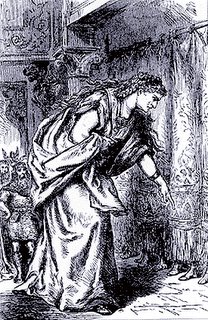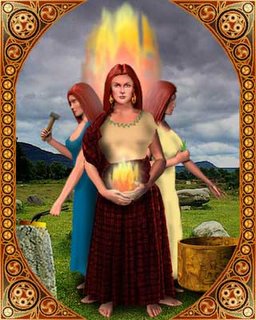Ante Diem VIII Kalendas Februarias

Modern Date : January 25th
Ante Diem VIII Kalendas Februarias
Eighth Day to the Kalends of February
This is one of the dies comitiales when committees of citizens could vote on political or criminal matters.
On this day in 41 BCE Claudius was named emperor. Although despised by many as an idiot, he had a distinguished, even scholarly, reign.
The emperor Nerva fell ill this day in 98 AD after a fit of anger, and died a day later.
This month is sacred to Janus, the god of Beginnings. Janus is the porter of heaven and considered the guardian deity of gates and doors. He is often shown as two-headed since doors face both ways.
Old Disting Day
Old Disting is the feast of the Disir, the Norse guardian goddesses. A major festival was held to honor all the Aesir at the temple in Uppsala, Sweden. The Dísir are a collective of divine female beings of whom little is known with certainty except that they are mentioned in concurrence with death and demise. Dís is believed to correspond to the idisi mentioned in the Old High German Merseburg Incantations as well as to ides, a poetic Anglo-Saxon synonym for "woman." Possibly, it is also etymologically related to the dhísanas, a group of female deities in the Yajur Veda.
Dís could be used in a way suggestive of a title (lady or goddess). Freyja is called Vanadís (dís of the vanir) and Álfhildr is refered to as a sun-dís.
Some Scandinavian place names tell of the influence of dísir, such as Diseberg and Disevi in Sweden or Disen in Norway.
St. Paul's Day
In Christian calendars, this is St. Paul's Day, commemorating the dramatic Conversion of St. Paul, who gave up being Saul, scourge of Christians, when he was knocked off his horse by a bolt of light that hit him right in the third eye -- this may help explain the frontal baldness with which he is almost always depicted. Jan. 25 is not the saint's actual feast day, which is celebrated on June 30, in honor of Paul as the prolific writer and marketing genius of early Christianity. In Britain this day is a notable weather marker, as it is said that rain on St. Paul's Day is a sign of a poor harvest to come in the autumn.
If the day of St Paul prove clear
Thus shall betide a happy year
If it chance to snow or rain
Then shall be dear all kinds of grain
But if high winds shall be aloft
Wars shall vex this realm full oft
And if thick mists make dark the sky
Both beasts and fowls this year shall die.
Erra Pater 1694
According to folk tradition, a nice day today meant nice weather all year. Snow or rain brought a bad year for crops. Clouds or mists meant a bad year for animals, and thunder was a forerunner of windy days.
Burns Night
On the day when Robert Burns was born, Scots celebrate the poet's birthday with feasts featuring haggis (Yuck!). If you don't fancy haggis, you can still celebrate Scotland by dining on other Scotch delicacies, like Scotch and shortbread.
St Dwynen
The Welsh St Valentine, she prayed to be free of the importuning of a suitor, but when she dreamed he was turned to ice, she changed her plea to ask that all lovers should either succeed or be cured. She never married but became a nun. Her church of Llanddwyn was one of the most popular in medieval Wales. Pilgrims learned their fortune by watching the movements of the fish at her well and people brought sick animals to be cured. But she was always most popular with lovers.


